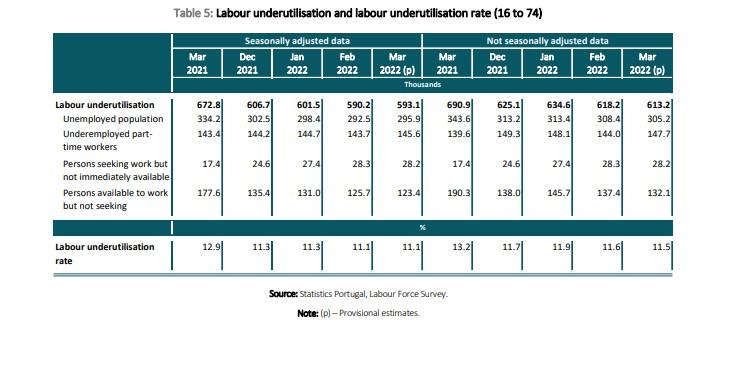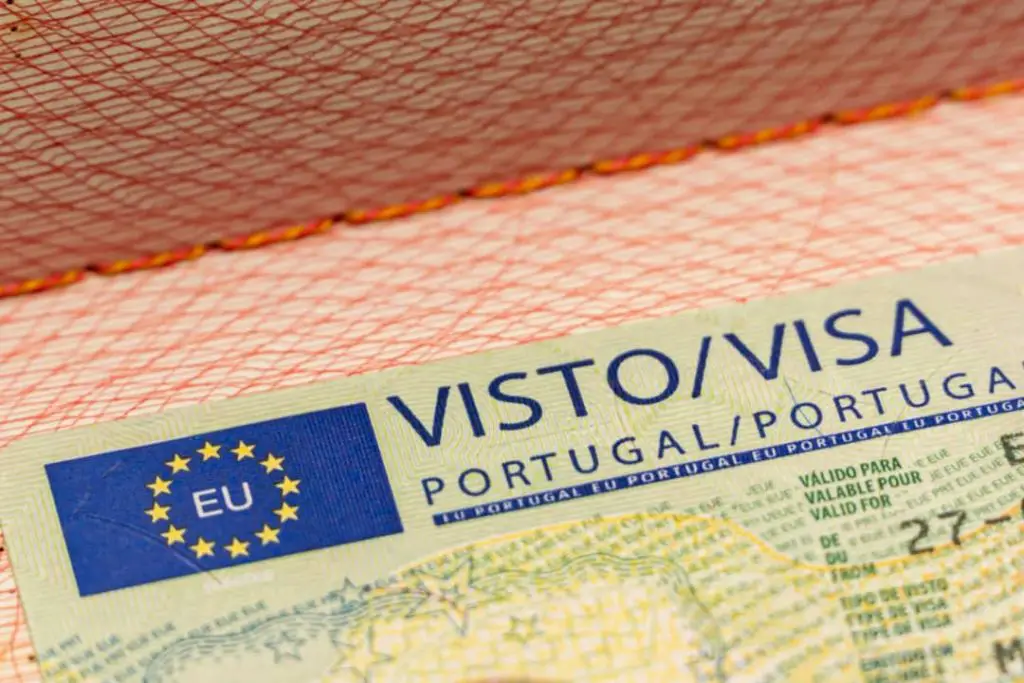Portugal has simplified visa regulations for citizens of eight Portuguese-speaking nations to address a labour shortage in a number of critical key industries, including administrative service, Information and Communications Technology (ICT), accommodation service, construction, health and social services, and more.
Data by Eurostat show that in July, Portugal had an unemployment rate of 5.9 per cent, near a record low, while its only land neighbour country, Spain, has an employment rate as high as 12.6 per cent, which also makes it the EU country with the highest unemployment rate.
- The Portuguese Council of Ministers decided to amend the law governing the entry, stay, departure, and removal of foreigners from Portugal’s national territory for residents of Lusophone countries.
- This was done to address a labour shortage in a number of critical key industries in Portugal.
- Immigrants from these countries have had to get a visa if they plan to stay in Portugal for more than 90 days and often have to wait many months to get visa approval.
The Czech Republic and Poland have the lowest unemployment rates in the EU, at only 2.3 per cent and 2.6 per cent, respectively.

Employers’ confederations have been asking for the immigration rules to be streamlined, pointing to an economic situation close to full employment, with no workers available in key sectors such as hotels, agriculture, and construction.
According to the Portuguese government, the changes intend to contribute to tackling the labour shortage in the country to revitalize the economy by promoting regular, safe, and orderly channels of migration.
“It (the decree) is absolutely fundamental in the organization of regular and orderly flows of immigration…it allows us to respond to the urgent needs of human resources and helps to revitalize our economy,” Parliamentary Affairs Minister Ana Catarina Mendes told reporters upon the meeting of the Council of Ministers.
The Portuguese Council of Ministers decided to amend the law governing the entry, stay, departure, and removal of foreigners from Portugal’s national territory for residents of Angola, Brazil, East Timor, Cape Verde, Guinea-Bissau, Equatorial Guinea, Mozambique, and São Tomé and Príncipe, all of which speak the Portuguese language.
Immigrants from these countries have had to get a visa if they plan to stay in Portugal for more than 90 days and often have to wait many months to get visa approval.
From now on, visas to enter Portugal for citizens of any CPLP member state “must be immediately granted by the consular services, unless there is an expulsion order or a ban to enter the Schengen Area”, Parliamentary Affairs Minister Ana Catarina Mendes told a news briefing.
“The amendments approved today promote mobility and freedom of movement within the Community of Portuguese-Speaking Countries (CPLP), allowing the implementation of the Agreement on Mobility between the CPLP Member States,” the government announced in a press release regarding the decision.
It goes on to say that as a result of the facilitated measures, nationals of CPLP nations will receive preliminary visa applications and will not be required to appear for an interview at the Portuguese embassy in their home country.
In addition, they will also be exempt from the obligation to present the following documents while applying for a visa:
- Valid travel insurance, covering expenses necessary for medical reasons, including urgent medical assistance and eventual repatriation
- Proof of sufficient means of subsistence
- Copy of the return transport ticket, except when a residence visa is requested

Considering that “it is important to strengthen cooperation within the Lusophone world,” Portugal’s prime minister António Costa said that this “is a very important step for the excellence of relations in political cooperation that has existed within the CPLP, economic cooperation also translates into the concrete day-to-day lives of citizens”.
The head of the Portuguese government was speaking in Maputo at a joint press conference with the President of the Republic of Mozambique, with whom he met as part of the 5th Luso-Mozambican Summit.
The Autorização de Residência para Actividades de Investimento – first introduced in 2012 and commonly known as the ‘Golden Visa’ – is a residence permit that provides qualifying non-EU / EEA / Swiss citizens and their families with full rights to live, work and study in Portugal.
According to The Portugal News, an alternative to the Golden Visa is the Portugal Passive Income Visa – also known as a D7 Visa – which provides residency status to non-EU / EEA / Swiss citizens, including retirees, who intend to relocate to Portugal and are in receipt of a reasonable and regular passive income. The D7 Visa is aimed at those who intend to live in Portugal, so holders must spend six consecutive months or eight non-consecutive months per year in Portugal.
Visa holders that become tax residents in Portugal may also be eligible for Portugal’s beneficial Non-Habitual Residency (NHR) tax programme. This enables qualifying entrepreneurs, professionals, retirees, and high net worth individuals (HNWIs) to enjoy reduced rates of tax on Portuguese-source income, added to which most foreign-source income has certain favourable taxation rules for a decade.
At the beginning of August, SchengenVisaInfo.com reported that Portugal had modified its foreigners’ law to facilitate immigration into the country. The modified law has established a new 120-day temporary visa, which can be extended for 60 more days for foreigners seeking work in Portugal.
Meanwhile, Portugal has restricted qualifying real estate purchases under the Golden Visa to drive investment toward Portugal’s low-density population areas, relieving pressure on higher-density areas such as Lisbon, Oporto, and the Algarve. This followed concerns about the impact on communities and housing affordability, especially in Lisbon, where foreigners have priced out many locals. Investment in any one of the non-real estate routes to residence has also been increased.
According to an article by The Portugal News published on August 31, 2022, the Hungarian Foreign Minister said that the European Union (EU) agreed to suspend an agreement with Russia that facilitates the issuance of visas, but it was not possible to reach the necessary unanimity to impose a total end to the issuance of visas to Russian citizens.
The Portuguese government was in favour of suspending this agreement, but away from the total ban on visas for Russians. “Russia is not a country in which we can have the kind of trust that underlies this type of agreement”, which facilitates the issuance of visas, said João Gomes Cravinho, the Portuguese minister responsible, in response to requests from the President of Ukraine, Volodymyr Zelensky.











